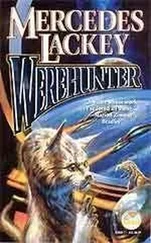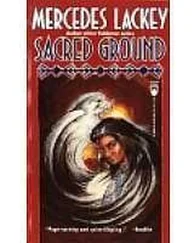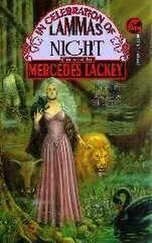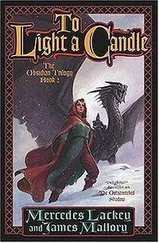Aurens, it appeared, was on the road to Damascus, sweeping all before him.
“They gave me a guide, and sent me off camel-back, and what was the oddest, I would have sworn that they knew I was coming and were only waiting for me.” That had been totally uncanny. The moment he had appeared, he had been escorted to the head of the garrison, some Sheik or other, then sent immediately out to the waiting guide and saddled camel. And the only answer to his question of “Where are you taking me?” was “Aurens commands.”
Deraa had been amazing. The situation outside Damascus was beyond imagination.
As he described it for his listeners, he could not fault them for their expressions of disbelief. He would not have believed it, if he had not seen it. Massed before Damascus was the greatest Arab army the world had ever seen. Kirkbride had been an Oxford scholar in History, and he could not imagine that such a gathering had ever occurred even at the height of the Crusades. Tribe after feuding tribe was gathered there, together, in the full strength of fighters. Boys as young as their early teens, and scarred old greybeards. There was order; there was discipline. Not the “discipline” of the British regulars, of drill and salute, of uniforms and ranks—a discipline of a peculiarly Eastern kind, in which individual and tribal differences were forgotten, submerged in favor of a goal that engaged every mind gathered here in a kind of white-hot fervor. Kirkbride had recognized Bedouins that were known to be half-pagan alongside Druses, alongside King Hussein’s own devout guard from Mecca—
That had brought him up short, and in answer to his stammered question, his guide had only smiled whitely. “You shall see,” he said only. “When we reach Aurens.”
Reach Aurens they did, and he was brought into the tent as though into the Presence. He was announced, and the figure in the spotlessly white robes turned his eyes on the messenger.
His listeners stilled, as some of his own awe communicated itself to them. He had no doubt, at that moment, that Aurens was a Presence. The blue eyes were unhuman; something burned in them that Kirkbride had never seen in all of his life. The face was as still as marble, but stronger than tempered steel. There was no weakness in this man, anywhere.
Aurens would have terrified him at that moment, except that he remembered the garrison holding Deraa. The Turks there were cared for, honorably. Their wounded were getting better treatment than their own commanders gave them. Somewhere, behind the burning eyes, there was mercy as well.
It took him a moment to realize that the men clustered about Aurens, as disciples about a master, included King Hussein, side-by-side, and apparently reconciled, with his son Feisal. King Hussein, pried out of Mecca at last—
Clearly taking a subservient role to Aurens, a foreigner, a Christian.
Kirkbride had meant to stammer out his errand then—except that at that moment, there came the call to prayer. Wild and wailing, it rang out across the camp.
Someone had translated it for Kirkbride once, imperfectly, or so he said. God alone is great; I testify that there are no Gods but God, and Mohammed is his Prophet. Come to prayer; come to security. God alone is great; there is no God but God.
And Aurens, the Englishman, the Christian, unrolled his carpet, faced Mecca with the rest, and fell upon his face.
That kept Kirkbride open-mouthed and speechless until the moment of prayer was over, and all rose again, taking their former places.
“He did what?” The officers were as dumbfounded as he had been.
Once again, Kirkbride was back in that tent, under the burning, blue gaze of those eyes. “He said to tell Allenby that if he wanted to see the taking of Damascus, he should find an aeroplane, else it would happen before he got there.” Kirkbride swallowed, as the mess erupted in a dozen shouted conversations at once.
Some of those involved other encounters with Aurens over the past few weeks. How he had been in a dozen places at once, always riding a white Arabian stallion or a pure white racing camel of incredible endurance. How he had rallied the men of every tribe. How he had emptied Mecca of its fighting men.
How he had appeared, impeccably uniformed, with apparently genuine requisition orders for guns, ammunition, explosives, supplies. How he had vanished into the desert with laden camels—and only later, were the orders proved forgeries so perfect that even Allenby could not be completely sure he had not signed them.
How, incredibly, all those incidents had taken place in the same day, at supply depots spread miles apart.
It was possible—barely. Such a feat could have been performed by a man with access to a high-powered motor-car. No one could prove Aurens had such access—but Hussein did; he owned several. And Hussein was now with Aurens—
It would still have taken incredible nerve and endurance. Kirkbride did not think he had the stamina to carry it off.
No one was paying any attention to him; he slipped out of the officers’ mess with his own head spinning. There was only one thing of which he was certain now.
He wanted to be in at the kill. But to do that, he had to get himself attached to Allenby’s staff within the next hour.
Impossible? Perhaps. But then again, had Aurens not said, as he took his leave, “We will meet again in Damascus”?
Kirkbride sat attentively at the general’s side; they had not come by aeroplane after all, but by staff car, and so they had missed the battle.
All six hours of it.
Six hours! He could scarcely credit it. Even the Germans had fled in terror at the news of the army camped outside their strongholds; they had not even waited to destroy their own supplies. The general would not have believed it, had not French observers confirmed it. Allenby had mustered all of the General Staff of the Allied forces, and a convoy of staff cars had pushed engines to the breaking-point to convey them all to the city, but Kirkbride had the feeling that this was the mountain come to Mohammed, and not the other way around. He had been listening to the natives, and the word in their mouths, spoken cautiously, but fervently, was that Aurens was Mohammed, or something very like him. The victories that Allah had granted were due entirely to his holiness, and not to his strategy. Strangest of all, this was agreed upon by Suni and Shiite, by Kurd and Afghani, by purest Circassian and darkest Egyptian, by Bedouin wanderer and Lebanese shopkeeper. There had been no such accord upon a prophet since the very days of Mohammed himself.
Allenby had convinced himself somehow that Aurens was going to simply, meekly, hand over his conquests to his rightful leader.
Kirkbride had the feeling that Allenby was not going to get what he expected.
Damascus was another Deraa, writ large. Only the Turkish holdings had been looted; the rest remained unmolested. There were no fires, no riots. High-spirited young warriors gamed and sported outside the city walls; inside, a stern and austere martial order prevailed. Even the hospital holding the wounded and sick Turkish prisoners was in as good order as might be expected, for a place that had been foul when the city was in Turkish hands. There was government; there was order. It was not an English order; organization was along tribal lines, rather than rank, to each tribe, a duty, and if they failed it, another was appointed to take it, to their eternal shame. But it was an order, and at the heart of it was the new Arab Government.
Allenby had laughed to hear that, at the gates of the city. As they were ushered into that government’s heart, he was no longer laughing. There were fire brigades, a police force; the destitute were being fed by the holy men from out of the looted German stores, and the sick tended by the Turkish doctors out of those same stores. There were scavenger-gangs to clear away the dead, with rights to loot the bodies to make up for the noisome work. British gold became the new currency; there was a market already, with barter encouraged. Everywhere Kirkbride looked, there was strange, yet logical, order. And Allenby’s face grew more and more grave.
Читать дальше












